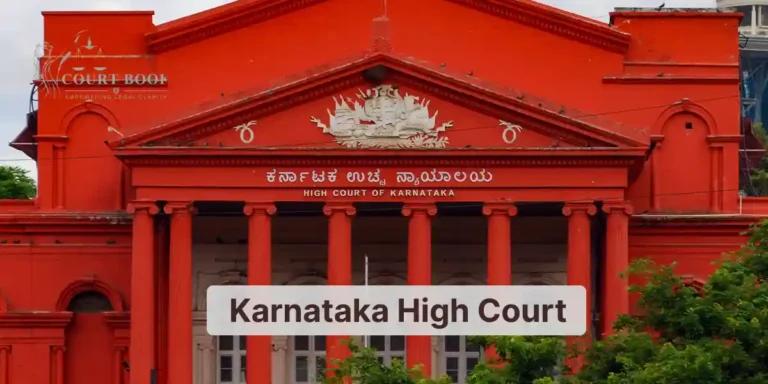The Karnataka High Court has reaffirmed that leave encashment is a constitutional property right, protected under Article 300A of the Indian Constitution. In a significant ruling, Justice M. Nagaprasanna held that an employee, even if dismissed from service, is entitled to encashment of earned leave. The court ruled that the refusal of the Karnataka Gramina Bank to grant leave encashment to a dismissed employee was illegal, as terminal benefits, once accrued, become an employee’s property and cannot be arbitrarily withheld.
Background of the Case
G. Linganagouda, a former Assistant Manager at Thungabhadra Gramina Bank (now Pragathi Krishna Gramin Bank), faced disciplinary proceedings initiated in 2012, resulting in his dismissal on December 19, 2014, due to misconduct. Following his dismissal, he sought the payment of terminal benefits, particularly the encashment of 220 days of privilege leave accrued during his tenure.
However, the bank denied his request, citing Regulation 67 of the Pragathi Krishna Gramin Bank (Officers and Employees) Service Regulations, 2013, which, according to the bank, prevented dismissed employees from claiming leave encashment.
Legal Battle and Arguments
Linganagouda, through his counsel Sri Nagangouda M. Patil, challenged this denial in court. He contended that leave encashment is a statutory right and cannot be arbitrarily denied. Citing a precedent from the Bombay High Court in Writ Petition No. 1347/2016, he argued that terminal benefits, including leave encashment, are protected property rights.
Read Also:- Karnataka High Court Dismisses FIR Against Journalist Rahul Shivshankar Over Controversial Tweet
On the other hand, the bank's counsel, Sri M.G. Kulkarni, defended the decision, stating that Regulation 67 clearly stipulated that if an employee ceases to be in service, they are not entitled to encashment of privilege leave. Since Linganagouda was dismissed due to misconduct, he was ineligible for the benefit, according to the bank’s interpretation of the regulation.
Court’s Observations
Justice M. Nagaprasanna thoroughly examined the applicable regulations and past judicial rulings. The court noted that:
- Regulation 61 of the Service Regulations provides an employee with one day of privilege leave for every 11 days of service completed on duty.
- Regulation 67 deals with the lapse of leave under certain circumstances, including retirement and retrenchment but does not specifically cover dismissal.
- Citing the case of Dattaram Atmaram Sawant v. Vidharbha Konkan Gramin Bank (2024:BHC-AS:20584-DB), the court reiterated that privilege leave encashment is a property right.
Read Also:- Karnataka High Court Halts Trial Court’s Fresh Summons to BS Yediyurappa in POCSO Case
“Leave encashment is akin to salary, which is property. Depriving a person of his property without any valid statutory provision would violate Article 300A of the Constitution of India.”
The court emphasized that Article 300A mandates that no person can be deprived of their property without lawful authority. Since leave encashment forms part of an employee’s earned benefits, it becomes their property upon accrual. Thus, the employer cannot arbitrarily deny it without specific statutory authority.
“Any attempt by an employer to take away an employee’s right to terminal benefits, including leave encashment, without explicit statutory backing, is unconstitutional.”
The Karnataka High Court quashed the bank’s denial of leave encashment and directed it to pay Linganagouda for the 220 days of accrued privilege leave. The court also ruled that if the payment is not made within two months, the bank must pay interest at a rate of 6% per annum from the due date until the amount is received by the petitioner.
Decided on: 19-02-2025
Neutral Citation: 2025:KHC-D:3366 | G. Linganagouda v. General Manager, Karnataka Gramina Bank
Counsel for Linganagouda: Sri Nagangouda M. Patil, Advocate
Counsel for Karnataka Gramina Bank: Sri M.G. Kulkarni, Advocate















